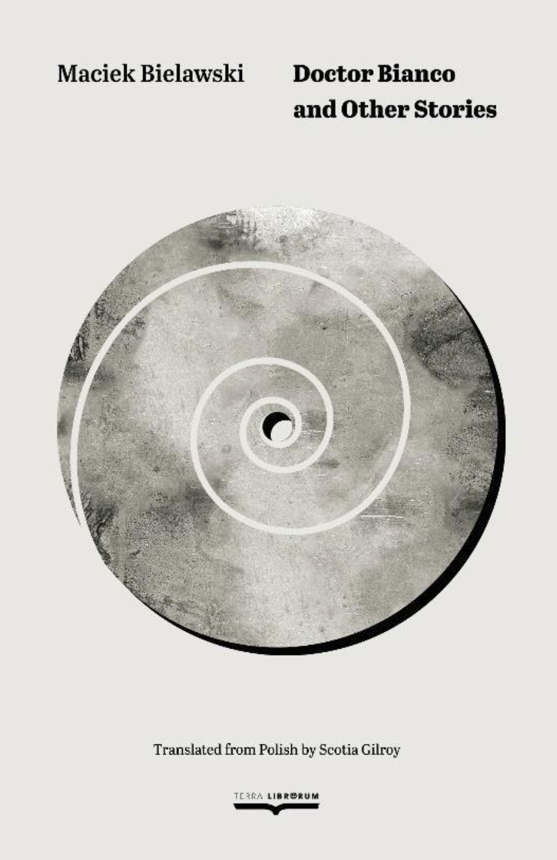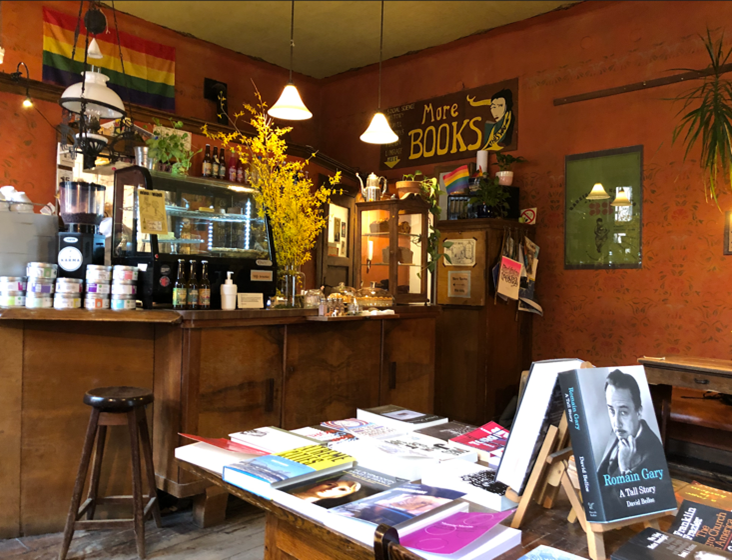A Kraków Literary Journal: “It was literature that first drew me here.” A Q&A with Scotia Gilroy, literary translator
by Michael Downs

For Scotia Gilroy, a literary translator living in Kraków, 2021 brought years of work to fruition. In that year, three publishers issued Gilroy’s translations:
• Indiana University Press published the Holocaust memoir, The Touch of an Angel by Henryk Schönker;
• Brill published the history book Polish Jews in Israel by Elżbieta Kossewska;
• and London-based Terra Liborum published Doctor Bianco and Other Stories by Maciek Bielawski.
Doctor Bianco recently was shortlisted for the ERBD Literature Prize, which awards €20,000 to the winning book.
Gilroy has also translated articles into English for the popular Polish culture website, Culture.pl. A Canadian, Gilroy began translating a decade ago, emphasizing literature and writing about Polish culture. She has lived in Kraków since 1999, and she was kind enough to answer questions for the Baltimore Review blog.
___________________________________________________
Q: What led you to translate Doctor Bianco and Other Stories?
A: I was invited by Terra Librorum, a London-based publishing house, to translate the book. I’d been recommended to them by the organizers of the International Short Story Festival in Wrocław, for whom, the year before, I’d translated one short story by Maciek Bielawski, who was a guest at the festival. The short story was “He Also Once Stayed in a Small Cabin” (from Doctor Bianco and Other Stories). I enjoyed the story’s dark, quirky humor and its premise of a family’s holiday being unsettled by the presence of a charming stranger. My translation was presented at the festival and also published in the festival’s accompanying literary journal. Later, when Terra Librorum wished to publish an English translation of the entire book, they asked the festival for my contact info. I agreed right away to the offer, knowing that translating the whole story collection would be a fun and challenging adventure.

Q: Though the prose in Bianco might strike some as simple and straightforward, so many of the passages in the book seem a challenge to translate. I’m thinking of the nearly four-page paragraph that ends the collection’s last story. Or the random, impressionistic thoughts of the old man in “I’m No Philosopher” as he sits alone, reminiscing. Or the urgent, seemingly random stream of thoughts in the mind of the narrator in “Continuation of the State” as he sits alone, drinking beer. What in the book’s language gave you the greatest challenge?
A: Yes, Bielawski’s style presented some challenges. For example, I needed to untangle his long, meandering sentences and make them flow smoothly in English, while simultaneously rendering his short, even one or two-word sentences in a way that would make sense to English readers. His style is a combination of these two things. Perhaps the hardest of these two types of sentences were the brief, offhand ones because they were like shorthand notes that make immediate sense to Polish readers because of their oblique references to familiar Polish things, but require fleshing out for readers in the English-speaking world. English readers need more context in order to understand what’s going on, since the cultural backdrop of these stories is foreign to them. So, I needed to figure out how to expand in certain spots while also preserving the offhand style of Bielawski’s stories (which are sometimes so casual and off-the-cuff they seem like they were jotted down quickly on a cocktail napkin). I needed to strike a balance between those two things in order to remain true to Bielawski’s literary voice.
Q: Aside from Bianco, what other books of Polish literature in translation would you recommend for English-language readers?
A: I highly recommend a few gems from the interwar period (1920s and 30s): Cinnamon Shops by Bruno Schulz, Boundary by Zofia Nałkowska, and I Burn Paris by Bruno Jasieński. A slightly darker but equally fascinating period in Polish literature is the immediate post-war decade, which saw the publication of my absolute favorite Polish novel – Tadeusz Konwicki’s A Minor Apocalypse. A bold, uncompromising writer I love from the post-war era is Marek Hłasko – I would particularly recommend his novel All Backs Were Turned, published in 1964. Although my favorite Polish books were published in the early and mid-20th century, there’s also some great contemporary Polish literature. Two more recent books I would highly recommend are Wioletta Greg’s Swallowing Mercury, which is a mesmerizing account of growing up in communist Poland, and Andrzej Stasiuk’s Tales of Galicia, a wonderful collection of stories about the lives of villagers shortly after the fall of communism.
Q: How does Kraków’s literary culture inspire or sustain you in your work?
A: It was literature that first drew me here. After reading Polish literature in English translation while a student in Canada, I decided, after graduation, to move to Poland to learn Polish well enough to be able to read Polish literature in the original. Before moving to Poland, I read about several Polish cities, and Krakow immediately attracted me because of its vivid literary life – many fantastic literary festivals and events throughout the year, a long history of writers who have lived here, and a dynamic present-day literary scene. Krakow hasn’t disappointed me in this regard. The city lives and breathes literature. Something I really love about it is how everywhere you go in Krakow, you can brush shoulders with writers and literati – it’s common to see well-known prose writers and poets sitting in cafes, enjoying the sunshine in the Planty, or drifting down the Old Town streets. I often joke that the first sign of spring in Krakow, for me, isn’t the sight of crocuses, snowdrops or tulips – but the sight of aging poets hunched over mugs of beer or shots of vodka at the outdoor tables in front of Vis a Vis in the Main Square in the fresh spring sunshine. It excites and inspires me to be surrounded by literary life while working on my own literary projects here.

Q: You’ve often mentioned the influence of Massolit, a twenty-year-old English-language bookstore and cafe, on your life and work. What’s your favorite aspect of Massolit?
A: Massolit is like a second home to me – I often spend whole days there reading, writing and translating. I love the laidback and timeless atmosphere, and the fact that no matter when I go there, I’m sure to bump into old friends or make interesting new ones. It’s a literary nucleus of Krakow, a magnet drawing together likeminded souls.
Q: What’s your next literary translation project?
A: At the moment I’m translating samples of various Polish books in the aim of pitching them to publishers in England, Canada, and the USA. A fantastic novel that I hope will be published in English is Filip Zawada’s Too Many Winters Have Passed for Spring to Ever Come, published in Poland last year. I’ve also translated a sample of a non-fiction book about the Indian Residential School system in Canada called The 27 Deaths of Toby Obed by Joanna Gierak-Onoszko, which I believe deserves to be published in English soon. Oh – and I’m also working right now on a spy novel! It's called The Advisor, by Jacek Dąbala, and was first published in Poland thirty years ago. It’s the first time I’ve ever translated what could, perhaps, be termed “pulp fiction” – and I’m enjoying it. It’s got vivid characters and a plotline that keeps the reader on the edge of their seat. In addition to books, I also regularly translate articles for the English version of the wonderful Polish literary and cultural quarterly Przekrój Magazine. And I’ve got many other literary translation projects lined up in the wings – but it’s too early to divulge these.
Michael Downs, who serves on the board of Baltimore Review, will soon return to the United States after several months living and writing in Kraków as a U.S. Fulbright Scholar. This blog post is part of a series he has written for the BR blog regarding literary Kraków. He’s the author, most recently, of the novel The Strange and True Tale of Horace Wells, Surgeon Dentist. Learn more about him at michael-downs.net.
